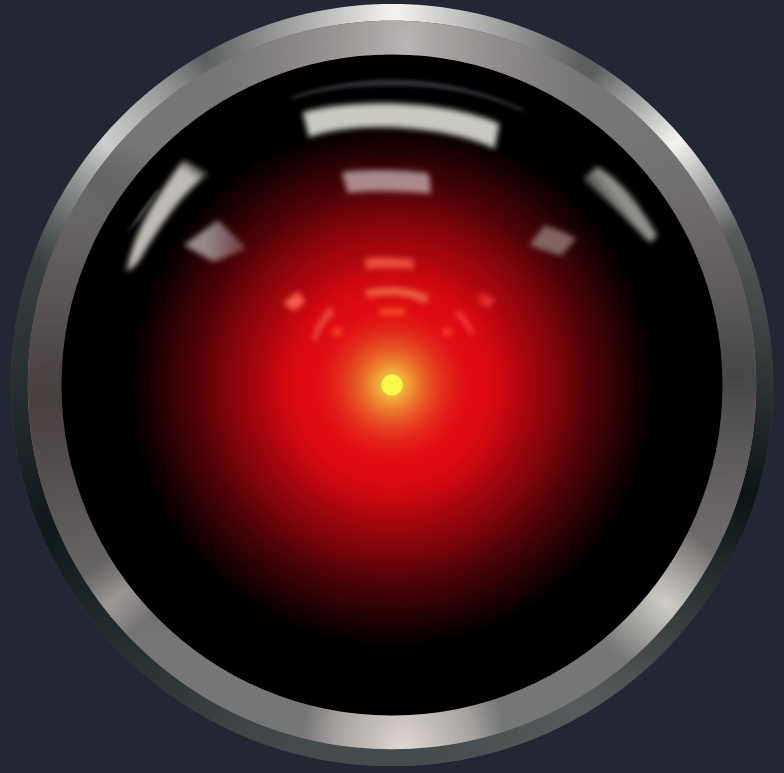Arch users whenever they update
Ironic that this image does not load for me
same using alexandrite
Works on my PC
Btw I use Arch
yay
That but add an -Syu at the end.
No need for that, why typing useless letters?
Why use many words when few words do trick?
yay
Awwww my GUI stopped working again after an update
I think I never waited so long for so few pixels outside or Reddit.
Rolling release?
I want revolving release, every one is a russian roulette to destroy my system
Welcome to Manjaro.
can’t understand how manjaro is still alive, given how much better endeavouros configures the system
Yeah, no idea. EOS is much better in every single way.
Will seems like arch users stereotype but i don’t need software im not gonna use
Maybe because many website still give recommendations who newbie in arch or Linux distro
Don’t believe it ?? Try googling itDamn MX Linux
I haven’t tried endeavor is yet. In what ways is it better than Manjaro?
in my experience manjaro install had a weird unnecessary customizations in terms of configuring things. Applications broke more often and it was harder to apply common fixes. Not very beginner-friendly because of that. Endeavor results in a much cleaner and simpler install
My experience since I began using Linux full time for my main desktop, chronologically: Manjaro, Kubuntu, Debian stable, Debian testing, endeavourOS. Started EOS a week ago and I was shocked by how well everything worked out of the box. A bunch of things I had to tweak and fix before, like messing with NVIDIA drivers among other things, just worked perfectly out of the box. I tried it on a lark after borking something on my Debian system, kinda reluctantly since I had already made a massive script for customizing my Debian based KDE installs, but in the end I didn’t even feel like I needed it because it all just worked fine without all my scripted workarounds for everything. Really impressed. I just got the plasma 6 update a couple of hours ago and it’s mostly fine, dealing with a couple of issues before deciding whether I hit that timeshift restore and wait some more
If system-breaking updates ship to consumers, the QA system doesn’t work.
openSUSE TW is rolling release and their openQA system is extremely robust.
Yoy made my day
Astra Linux then?
Me using GNOME on Arch
Joke’s on you! My configuration is so borked that I’m afraid to upgrade!
Why would I want Plasma 6 on a stable release. That’s not why people use Debian
Yeah, this kind of misunderstands what debian is. If you wanted newer bleeding edge stuff you wouldn’t be using debian. Debian is all about the stability.
That said, Debian Sid or testing (the bleeding edge system that 13 will come from) may move to 6? Debian 12 was last year so 13 would be in 2025, so it seems likely 6 will make its way into the bleeding edge versions if people really wanted to use it. But there are better options for most end users than using test versions of major distros.
Debian is not all about “stability” in the sense of “doesn’t crash”. Debian is all about consistency. The platform doesn’t change. That means if there is a bug that crashes the system for you… it’s going to consistently be there.
For me, it was when stable was on kernel 3.16, and 3.18 was in testing, but the latest kernel was 3.19. And this was an era where AMD’s drivers not fully OpenGL compliant yet. Which meant games would crash. And knowing “this game will always crash until 3 years from now when we finally get a newer kernel” was enough to chase me off.
debian’s neovim package is 0.7.2. Sid is 0.7.2. Experimental is 0.9.5… If there are any bugfixes between 0.7.2 and 0.9.5 that are critical for your workflow… too bad. If its not a “security” release, its not getting updated. You can live with knowing the bug.
“Never change anything, stick to known good versions” only works if you know 100% that the “known good version” is actually bug free. No code is bug free, so inevitably the locked down versions in Debian will have still some flaws (and debian doesn’t backport bugfixes, they only backport SECURITY fixes). For most use cases, the flaws will be minor enough to not matter. But inevitably, if a flaw exists, it affects SOMEONE.
If you actually want to do any sort of complicated computing, debian is not a great choice. if you want a unchanging base so you can run a web browser and processor, I’m sure it’s great.
Debian is not all about “stability” in the sense of “doesn’t crash”. Debian is all about consistency. The platform doesn’t change.
Yes, that’s what ‘stable’ means.
Most people use stable to refer to something that doesn’t crash or cause issues. Something that you might call “rock solid” which implies it’s not going to fall over. Something to put on your server because you’ll get great uptime without issues.
Debian is one of the few places where stable might crash more than unstable, because known bugs in Debian don’t get backported unless they cause security issues.
I use Debian on my servers because “some testing” is nice and the only thing I run on my servers is docker. And ironically, I have to use a PPA for docker.
So for me, it’s a stable enough base OS, but it “too stable” for anything that actually runs on the servers.
If you want cutting edge you should use Fedora. Debian does have a unstable branch but it isn’t really tested
Thats seriously overstating things. I’ve been running testing or sid for years and years, and I can only remember a handful of times where anything meaningfully broke. And typically its dependency breakages, not actual software breakages.
Testing is different from unstable. Testing should be fairly stable but it is missing security support so keep that in mind.
Yes I’m aware of the security tradeoffs with testing, which is why I’ve started refraining from mentioning it as an option as pedants like to pop out of the woodwork and mention this exact issue every damn time.
Also, testing absolutely gets “security support”, the issue is that security fixes don’t land in testing immediately and so there can be some delay. As per the FAQ:
Security for testing benefits from the security efforts of the entire project for unstable. However, there is a minimum two-day migration delay, and sometimes security fixes can be held up by transitions. The Security Team helps to move along those transitions holding back important security uploads, but this is not always possible and delays may occur.
This is more accurate

Distrobox
I really do want to thank Arch, Fedora, NixOS, OpenSUSE users for beta testing software for me.
Arch is the least buggy distro I ever tried.
Except for Slackware maybe. Slackware has literally no bugs. If it doesn’t behave like it should, it’s your fault.
Same. I’ve switched to Arch from Ubuntu as my main os almost 10 years ago and in all that time I’ve had a problem that goes beyond inconvenience level maybe twice. In fact Ubuntu broke more often.
Ubuntu likes to release if the software is ready or not. Linux Mint will hold back releases.
I broke my install by updating it, I get that if you perfectly understand what’s going on then it has no bugs but that’s really not my experience. A lot of the time something will break and it’s easy to say “I should’ve known it was this so it’s my fault” but really if you didn’t expect it to work a certain way and it breaks it’s not a super stable system.
My Ubuntu broke literally every time I did a version upgrade. It’s probably better now, but I’m not going back.
The last system that straight up broke for me was a default installation of Debian Stable, and that wasn’t long ago.I understand Arch isn’t easy to use or maintain.
But in my opinion, if you use something wrong and it breaks, that doesn’t mean it’s unstable. And if you update Arch by simply hitting “pacman -Syu” every day, you’re doing it wrong.But if lots of people use it wrong and break it then maybe it’s too obtuse. I broke one of my applications by upgrading packages. The solution? Install the package again, I thought the package manager would take care of stuff like that but if it’s meant to be me then I think it’s a bad system.
I always find it kinda weird when people criticize free software.
Like, the developers make something, give it to you for free, pay for server space so you can download it for free, and then you say “it sucks”.
OK, just don’t use it then.Criticism and hate are two different things. I hate windows, I can criticise parts of arch Linux which is so far my favourite OS. Me not liking part of it or the way it works doesn’t mean there’s another version that is completely perfect and I should just shut up and use that. Also no it doesn’t suck, but updating my system and having it break is a problem I should not be having.
you’re welcome, my endeavoros desktoo theme just shot itself on the head, I don’t even use nvidia, jesus
Yay all of my extensions and themes are broken
I use latte dock, so until either it starts working in plasma 6 or i find a proper replacement i simply wont update my system lol
the new plasma 6 panel can be customized to pretty much a dock
the default tasks applets still isn’t nearly as good thoughI believe Plasma 6 includes a new dock.
Made the switch on EndeavourOS this morning and so far so good. I was hesitant to update to Wayland because I’m still a newb and heard there were issues, but my system is AMD based so no problems (yet).
I like it
I think most people complaining about Wayland nowadays are just Nvidia users. I don’t have any problems with it on my AMD GPU.
My biggest issue with wayland was screensharing on Discord, but plasma 6 fixed that with xwaylandvideobridge
I’ve been using Wayland as a daily driver for a few years now, and I’d say it’s ready for 98% of use cases
In a way, Squidward is really like Debian, if those two are Arch and NixOS. And as I grow older, I can relate to Squidward more and more…
Come to the dark side, join the sid.
no thanks, I reached the point in my life where I prefer stability, especially with my main machine. I love Debian, only because it’s Debian. 💛
Seriously. LTS for life.
For my use cases (audio, programming, engineering school, watching crap on FreeTube) I value stability and predictability over security and shiny new stuff. In the rare cases that things break, they break in ways that are already well-understood, so usually have workarounds or solutions.
In the few cases I do need something newer than the Debian repos provide, I just use Flatpaks or get an updated .deb from the devs of the particular software.
So yeah, zero rush for Plasma 6 for me. It looks nice, but I’ll just be chilling on Plasma 5 until it comes out.
There is a fine line between stable and outdated. Some debian pakages are like 2 years out of date. I just cant handle that on a desktop.
2 years out of date is usually fine for me. When it isn’t, I haven’t had a problem using the Flatpak or a .deb directly from whoever released the software.
Flatpak, nix, guix, snap, appimage, distrobox, etc. You most certainly can handle that.
On my system half of the packages come from Debian repositories, and half from nix unstable.
So don’t run stable on a desktop? If you want a bleeding edge rolling release, that’s what sid is for.
Dont you think there is a healthy line between booth? I would not whant anyone using old ass versions with old ass bugs. Its also bad for new users, who expect software to be remotly up to date.
For the target users of Debian stable? No.
Debian stable is for servers or other applications where security and predictability are paramount. For that application I absolutely do not want a lot package churn. Quite the opposite.
Meanwhile Sid provides a rolling release experience that in practice is every bit as stable as any other rolling release distro.
And if I have something running stable and I really need to pull in the latest of something, I can always mix and match.
What makes Debian unique is that it offers a spectrum of options for different use cases and then lets me choose.
If you don’t want that, fine, don’t use Debian. But for a lot of us, we choose Debian because of how it’s managed, not in spite of it.
Arch is actually pretty stable. And one of the best things about using arch is the arch wiki which is the best documentation I’ve ever seen for any distro.
My experience trying to solve specific issues on Debian and Ubuntu lead me down rabbit holes of forums where even the accepted answer is wrong.
I’m on KDE Arch and switched about a week ago. I have an Nvidia card and went straight from x11 to Wayland plasma 6. It’s definitely prettier and smoother, but it’s absolutely not as stable. Idk if that’s an Nvidia things, a Wayland thing, or a plasma 6 thing, but I definitely have fairly consistent display issues after switching. I have a btrfs snapshot from right before I updated that’s at plasma 5, so I have a fallback if I want it. It’s mostly just an inconvenience right now, so I’ll probably just ride it out for a while and see if things improve.
Nvidia hates users. Nvidia, fuck you
It’s definitely Wayland on Nvidia, I had the same issues, Element had a flickering black screen. Switching the default session from Wayland to X11 fixed all issues.
From my experience it happens with any XWayland window that fails to hit your display refresh rate. Makes programs such as vscode or element almost impossible to use on high Hz screens, as their max fps is locked to 60.
Yep. I decided to try a quick search and it sounds like it’s a common issue. Switched back to x11 and I’m stable again.
“Run, my little QA team. Do my bidding.”
Lmao, none of the images posted to these comments are loading…
Have you tried updating your drivers?
Currently running endeavour and having fun with the update.



















